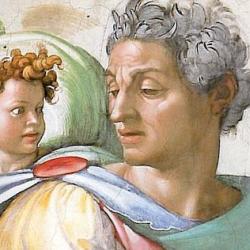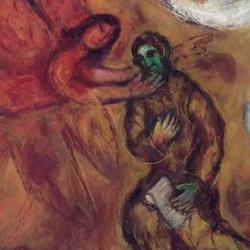The idolater ends up eating ashes, Isaiah says (Isaiah 44:20).
In context, that fits with Isaiah’s emphasis on the fact that the idols is made from the refuse of a building project. A carpenter cuts cedar, builds a fire, cooks bread and his meat, and from the leftovers he makes himself a god (v. 17). Ashes are the leftover of a fire, and the god is the residue of his technology.
Ashes are also symbols of death, or the lamentation for death.
The Psalmist complains that he is given ashes for bread (Psalm 107), and ashes on the head signify mourning. The idol is nothing, it is dead. Whoever worships it feeds on death.
And there is also a sacrificial idea here. The ashes of a sacrifice were neither God’s food nor the worshipers, but were cleared away and taken outside the camp. Someone who is eating ashes is not among God’s table fellows, but is positioned outside the camp, with only refuse for food.
And this all connects to the fact that idols are “abominations” (v. 19). An abomination is something that we spit out, something that God spits out, something that the land vomits out. Idols are abominations because they cause the land to vomit out Israel, and cause Yahweh to vomit the people from His presence. Idols fill their worshipers with abomination, un-food that they can’t even swallow.










